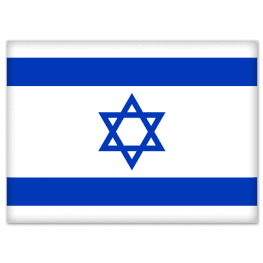 Anyone who has followed my blog will know that I have written extensively about pogroms. My family survived pogroms and I have been writing about them for years. But I never expected to witness pogroms in my lifetime. The slaughter of communities in southern Israel by Hamas terrorists is a stark reminder of the antisemitic violence our ancestors faced repeatedly in the Russian Empire more than a century ago: brutal assaults, rape, beheadings, indiscriminate killing of women, children and babies, entire families massacred. The Hamas attacks were also timed to call to mind the shock invasion of Israel in 1973 by Syrian and Egyptian forces, which took place on Yom Kippur, the holiest day in the Jewish calendar. This month’s surprise invasion by Hamas coincided with the end of Sukkot, again a time when Jews were celebrating a religious holiday, and exactly fifty years on from the Yom Kippur war. Back in 1973, the Arab forces were armed by the Soviet Union and were quickly and soundly defeated by Israel and its ally, the US. Today, neither Israel nor Gaza is likely to win a rapid or decisive victory. Ironically, the only probable winner in the conflict will be the Soviet Union’s dominant successor state – Russia. Israeli images of burnt-out cars, bodies littering the streets, houses and shops pockmarked with bullet holes, are hauntingly reminiscent of the scenes in Ukrainian towns including Bucha and Irpin in March 2022 after Russia’s failed attempt to take Kyiv. While there is no evidence to suggest that Russia was directly involved in the Hamas incursions, Russian weaponry has almost certainly found its way to Gaza – provided by Iran – and may well have been used by the Palestinian fighters. Russia’s relations with Hamas date back to 2006, when the Palestinian faction won its famous election victory. Numerous Hamas delegations have visited Moscow since then, most recently in March this year, as Russia has attempted to carve out a niche for itself in the Middle East peace process by mediating between different Palestinian groups. Russia’s relationship with Iran – Hamas’ main international backer – has strengthened considerably in the last 18 months as Moscow has become heavily dependent on Tehran as a supplier of weapons, including artillery and tank rounds and, most importantly, the Shahed kamikaze drones that it uses to attack civilian infrastructure in Ukraine. For Russia, the key benefit of the conflict in Israel and Gaza is that it is diverting the West’s attention away from Ukraine. For the first time in 18 months, the spotlight is no longer on Moscow’s full-scale invasion of Ukraine, and US President Joe Biden has promised to supply Israel with all the military assistance it needs. If the violence in the Middle East continues for more than a few weeks, this is likely to engender a fall in US financial and military support for Ukraine. “Russia is interested in triggering a war in the Middle East, so that a new source of pain and suffering could undermine world unity, increase discord and contradictions, and thus help Russia destroy freedom in Europe,” Ukrainian president Volodymyr Zelensky said this week. Russia’s response to the events in the Middle East has been muted, in spite of its strengthening ties with Israel, forged by the countries’ cooperation over Syria that has enabled Israel to secure its north-eastern border. For Kyiv, the timing of the latest Middle East crisis is terrible, coming just when the tide appears to be turning against Ukraine. Its ground offensive has been slower and less successful than had been hoped, the army is running out of ammunition, and international support is waning. Even before the Hamas attacks, some US Republicans were arguing against continued military aid for Ukraine, and with a tight presidential election campaign looming, many fear that US weapons supplies will tail off. While Israel is a longstanding ally of the US and holds great resonance for many Americans, Ukraine is often perceived as distant and irrelevant to US interests. If the two are in competition for US funding, Israel will be the winner. Elsewhere, Slovakia recently elected a government that is sympathetic towards Russia, breaking the EU’s consensus of support for Ukraine. And in Poland, where voters go to the polls this weekend, a far-right coalition campaigning to reduce support for Ukraine and Ukrainian refugees may end up holding the balance of power. Already disputes over Ukrainian grain exports being diverted through Poland have cooled relations between the countries. Zelensky is keen to draw parallels between the two conflicts, to urge the West to support the cause of democracy, freedom and human rights. “It’s the same evil – the only difference is that it was a terrorist organisation that attacked Israel, and here a terrorist state attacked Ukraine,” he says. Support for Israel is palpable in Ukraine as the population sees those parallels too. A large screen in Kyiv is lit up with an image of the Israeli flag and locals have placed flowers and candles outside the Israeli embassy. The visible signs of support come in spite of Israel’s lack of military aid and its repeated refusal to make its Iron Dome missile defence system available to Ukraine, as well as arguments over Israel’s treatment of Ukrainians refugees.
0 Comments
Leave a Reply. |
Keeping stories aliveThis blog aims to discuss historical events relating to the Jewish communities of Ukraine, and of Eastern Europe more widely. As a storyteller, I hope to keep alive stories of the past and remember those who told or experienced them. Like so many others, I am deeply troubled by the war in Ukraine and for the foreseeable future, most articles published here will focus on the war, with an emphasis on parallels with other tumultuous periods in Ukraine's tragic history. Archives
March 2024
Categories
All
|
 RSS Feed
RSS Feed
